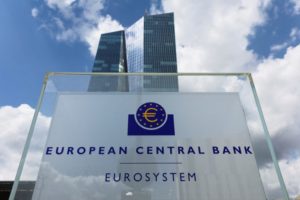The European Central Bank Tightening the Monetary Policy
In order to overcome the sharply increased inflation, the European Central Bank decided to tighten the monetary policy. The ECB committee increased the refinancing rate by an additional 50 basis points, which is in line with the rate forecast by analysts.
As a result of today’s decision, the main refinancing rate reached 2.0%. It’s worth mentioning that until now the main rate was 1.5%, the European Central Bank increased the policy rate not by 50 but by 75 basis points at the previous meeting.
The Major Steps of the European Central Bank Regarding Monetary Policy:
The easing of the pace of monetary policy tightening is due to the improvement of inflation indicators, in particular, the level of inflation across the Eurozone decreased to 10.0% in November, which is 0.6 percentage points less than the previous month.
The 50-point tightening is due to the decrease in the growth rate of consumer prices. In addition, the US Federal Reserve increased the key rate by 0.50%, instead of 75 basis points.
The refinancing rate is one of the main mechanisms for controlling the inflation rate, though is accompanied by certain side effects. As a rule, the tightening of the monetary policy leads to the slowdown of the economy, and in the conditions of the worsening situation worldwide, the European Union is facing increasing risks of recession, therefore, the central bank has to maintain a rather difficult and delicate balance between controlling inflation and maintaining economic growth.
The impact of monetary policy from the European Central Bank on the exchange rate should also be taken into account. The increase in the interest rate is likely to have a positive effect on the euro exchange rate in the short term and to some extent prevent its depreciation trend against the US dollar.


